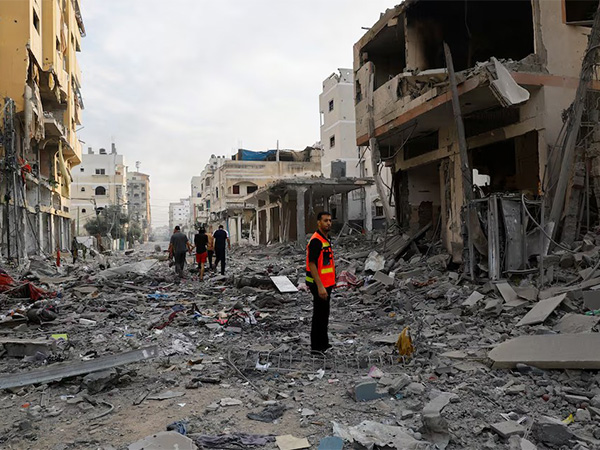
Global Call for Immediate Ceasefire in Gaza
A significant number of countries across the globe have issued a joint statement demanding an immediate end to the ongoing conflict in Gaza. The statement emphasizes the need for political solutions that ensure lasting peace and security in the region.
The joint statement was published by Australian Foreign Minister Penny Wong on her official website. It was signed by 28 nations, including several European countries, as well as the EU Commissioner for Equality, Preparedness, and Crisis Management. This collective voice highlights growing international concern over the humanitarian crisis in Gaza.
Escalating Humanitarian Crisis
The statement draws attention to the worsening conditions faced by civilians in Gaza, describing the situation as reaching "new depths." It criticizes the Israeli government's aid delivery model, calling it "dangerous" and emphasizing that it contributes to instability while denying Gazans their basic human dignity. The signatories strongly condemn the slow distribution of aid and the tragic loss of civilian lives, including children, who are trying to access essential resources like water and food.
According to the statement, more than 800 Palestinians have lost their lives while seeking aid, a figure that has sparked outrage among the signatories. The statement further asserts that the Israeli government’s refusal to provide necessary humanitarian assistance is unacceptable and violates international humanitarian law.
Condemnation of Hostage Detention
In addition to addressing the humanitarian crisis, the statement condemns the continued detention of hostages by Hamas since October 7, 2023. It expresses deep concern for the suffering of these individuals and calls for their immediate and unconditional release. The signatories believe that a negotiated ceasefire offers the best hope of bringing the hostages home and alleviating the pain of their families.
Urgent Action Required
The statement urges the Israeli government to lift all restrictions on the flow of aid and to allow the United Nations and humanitarian organizations to carry out their life-saving work safely and effectively. It also emphasizes the importance of protecting civilians and upholding international humanitarian law.
The document strongly opposes any attempts to forcibly displace the Palestinian population into a so-called "humanitarian city." Such actions are described as unacceptable and a violation of international law. Permanent displacement, according to the statement, undermines the principles of human rights and the rule of law.
Opposition to Territorial Changes
The signatories also express strong opposition to any steps that could lead to territorial or demographic changes in the Occupied Palestinian Territories. Specifically, they criticize Israel's E1 settlement plan, which, if implemented, would divide a potential Palestinian state and mark a clear breach of international law. The statement also notes the accelerated construction of settlements across the West Bank, including East Jerusalem, and the rise in settler violence against Palestinians. These developments must come to an end, the statement insists.
Commitment to Peace and Security
The joint statement calls for unity among all parties involved and the international community to bring an end to the conflict through an immediate, unconditional, and permanent ceasefire. It underscores that further bloodshed serves no purpose and reaffirms support for the efforts of the United States, Qatar, and Egypt in achieving this goal.
In its concluding remarks, the statement affirms the willingness of the signatories to take further action to support an immediate ceasefire and to establish a political pathway toward security and peace for Israelis, Palestinians, and the entire region.
Signatories of the Joint Statement
The list of signatories includes the Foreign Ministers of Australia, Austria, Belgium, Canada, Cyprus, Denmark, Estonia, Finland, France, Iceland, Ireland, Italy, Greece, Japan, Latvia, Lithuania, Luxembourg, Malta, The Netherlands, New Zealand, Norway, Poland, Portugal, Slovenia, Spain, Sweden, Switzerland, and the UK. Additionally, the EU Commissioner for Equality, Preparedness, and Crisis Management also signed the statement.
